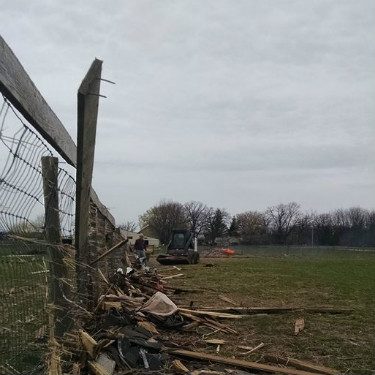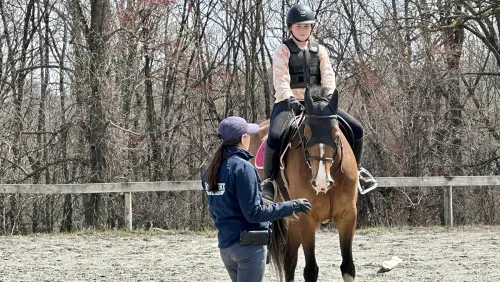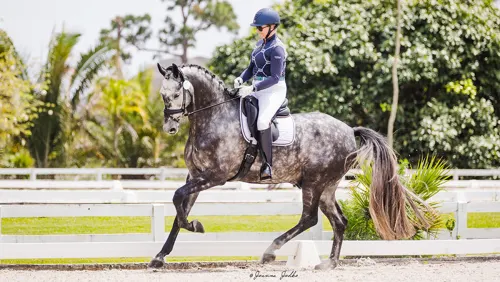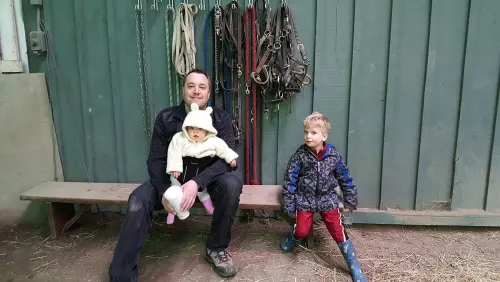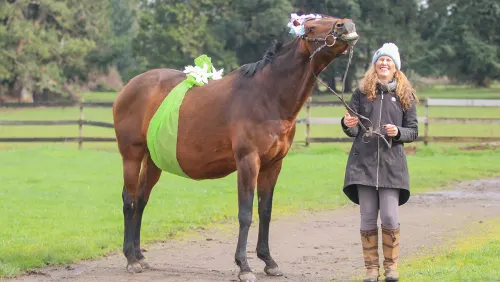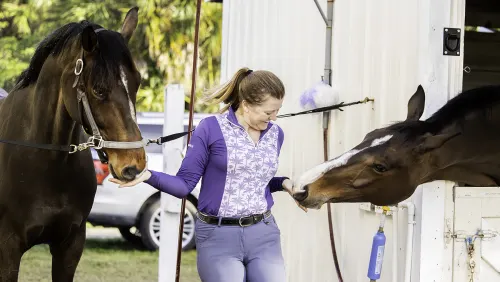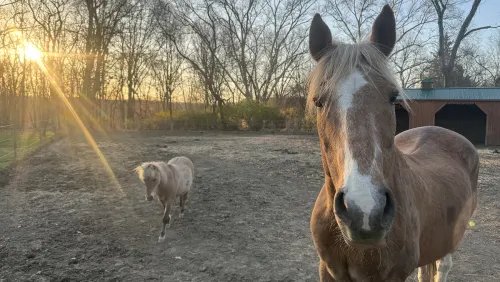“There it is,” Mom said.
Dread is thick; it sits in a cave at the back of your mouth and oozes through your insides like tree sap down a trunk. Perhaps this slow panic has some evolutionary advantage, giving us time to consider the best reaction. Maybe it numbs us just enough to not feel the death blow, when it lands.
Mom just stared onward. I did, too, for a few horrendous moments. All I could think: ‘We don’t have a storm shelter.’
I’d seen tornados before, but this was unlike anything I’d ever seen. It was flowing across the cornfield diagonally on a path straight for us, moving with a hypnotic grace. Storm chasers would later rate it an EF4 with a radius a mile wide. Recognition of what it was came the moment I saw it. This was going to kill us. That much seemed to be an inalienable fact. Then something stubborn pushed back against that fact.
“Where do we go?” Mom’s voice was urgent and helpless.
“Bathroom. Let’s go. Come on!” I responded, suddenly eager to be proactive.
Mom and I piled into the bathtub with our dogs and Dad threw a comforter over us and we waited. I heard the roar getting louder and I wrapped my arms around my dog and closed my eyes and waited for the blow.
I don’t know how it felt for the countless other people who lived through this tornado that traveled 30 miles in Northern Illinois, but for me, the final moments as it slid closer were marked by peace.
ADVERTISEMENT
In the physiological coin toss of fight or flight, I’ve learned that I am mostly fight. Rage against death. Spend all your nerve; show your teeth pointless though they are, because life is worth the fight. But there was no fighting this; it would come or it would pass us by. In the height of the roar, my fear slipped away and nothing came to fill its place. There was just serene emptiness. Waiting.
It was Buster the lesson horse that knocked me out of my death glaze. I heard hoofbeats outside and saw Buster in the front yard, not where we’d left him. The tornado had passed us by; the fight was back on. It was then that I realized that there were horses outside that had surely been in the path. None of us checked to see if the worst of the weather was over before dashing outside to catch Buster and head to the barn.
Pasture fences were down, a run-in shed was gone, two 20-by-12 foot barn doors had been ripped off their hinges and carried about 1,000 feet into the pasture, and a small swath of roof was missing from the indoor arena. In my haste to attend to injured horses, I didn’t notice until the next morning that my neighbor’s home and barn just across the street were completely destroyed.
Damage assessment happens in ever tightening circles. All the horses that were outside when it hit were on their feet and breathing when we got to them. The first circle: they survived.
Mom and I went to get Mesa, a 3-year-old, and Tomi, 2, from the pasture. The next circle: there’s blood here, a lot of blood. I don’t remember what Mom kept saying as we led them in but it was some variation of, “They’re not OK.”
It was difficult to assess injuries in the trembling beam of my headlamp, but Mesa was bleeding all over. He had gashes everywhere. His breathing was labored, shallow and rapid, and he trembled all over. Tomi was relatively blood free but upon seeing the massive hematoma, I was positive he’d broken his shoulder. When I don’t know the extent of the damage, it’s almost soothing to assume the worst.
Third circle: dread returns. This is really bad. And so on it goes, ever tightening.
Fortunately, most of us don’t often see horses in a state of intense shock and terror. Mesa and Tomi, these kind animals that we’d bred and raised, trembled and panted, eyes rolling to whites yet hooded in exhaustion. Not being able to take away their fear and pain was the worst part. We’d called our vet moments after we’d gotten to the horses but he was having trouble getting to us because of all the closed roads. What is normally a 15-minute drive took our vet almost two hours. Most of what we did that night was damage control in the form of IV fluids and antibiotics. There would be lots of vet work ahead but not tonight, not in the dark on horses that might be dying anyway.
ADVERTISEMENT
Mesa’s breathing remained labored, his lung sounds were uneven and noisy, and he continued to tremble and sway on his feet. We debated trying to get him to a clinic, but roads were blocked in all directions and even if we could get him to more advanced care, how do you save a horse with unknown internal injuries that is in severe shock already? We asked the vet what he thought; I think Mom specifically said, “will he survive the night?”
“He will or he won’t,” was the workmanlike reply.
Our horses looked better in the daylight the next morning. Everything else looked worse.
Mesa and Tomi would need extensive care for weeks to come, but Mesa did not die of internal injuries, and Tomi did not have a broken shoulder. Looking beyond our flattened fence lines I saw our neighbor’s home reduced to rubble. For days afterward, every evening I could see the blazes of the remnants of homes being burned in huge bonfires. During debris clean-up I found family pictures, kitchen utensils, a baby’s bib, an engraved Zippo lighter, so many artifacts from people’s lives ripped away and scattered.
We were so incredibly lucky; some would say blessed. That too, is an inalienable fact.
Mesa and I went for his first ride since the tornado today. He is as plucky as ever. Across the road at our neighbor’s, a wooden skeleton is rising out of the piles of wreckage. I’ve been watching it take shape every day; a new barn, I think.
Isn’t it amazing, the things that we lose, and the things that we don’t?
Rebecca Young works for Everbold Farm in Kirkland, Ill. She rides, trains, shows and breeds primarily jumpers but does not discriminate against the occasional hunter. When not on horseback, Rebecca takes great joy in hiking, skiing, mountaineering,

